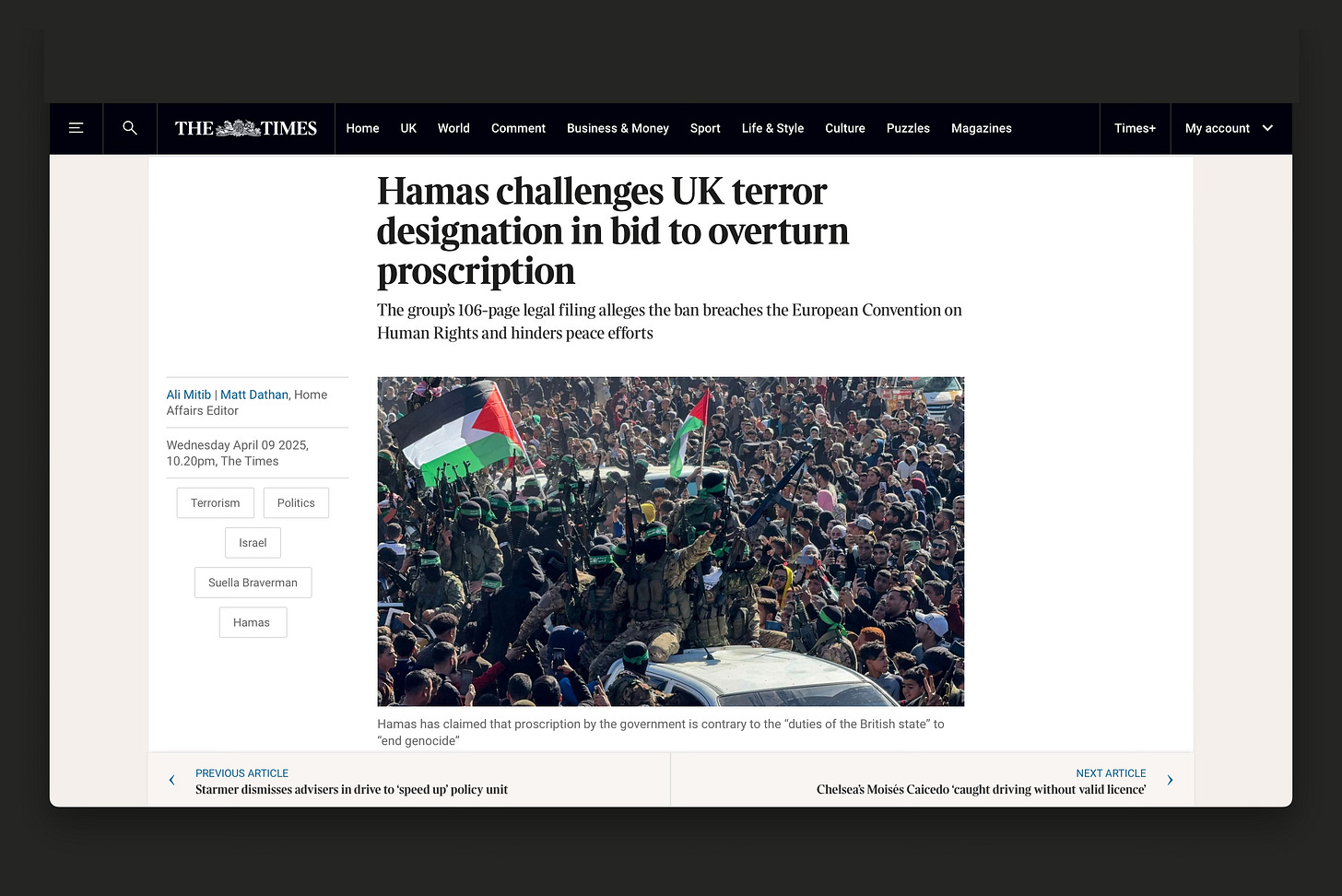Hamas Weaponises Human Rights Laws Used Against British Veterans
Terror group exploits same legal mechanisms championed by Starmer and Hermer used to pursue Northern Ireland soldiers
In a preposterous development that underscores the absurd, if not unworkable, intersection of law and counterterrorism, Hamas is wielding the European Convention on Human Rights - a cornerstone of British legal liberalism - to challenge its terror designation.
This manoeuvre represents a remarkable irony: the same human rights mechanisms championed by Sir Keir Starmer and Lord Peter Hain in pursuing historical prosecutions against Northern Ireland veterans are now being deployed by a designated terrorist organisation.
The parallel is striking.
During The Troubles, British soldiers operated under the fog of a complex asymmetrical conflict, making split-second decisions in an environment where combatants and civilians were often indistinguishable.
Decades later, these veterans faced investigations and potential prosecutions under human rights legislation, with legal figures arguing that time should not be a barrier to accountability.
Hamas's 106-page legal challenge mirrors these same principles. Their argument that proscription "unlawfully restricts freedom of speech" and is "disproportionate" echoes the very legal framework that has been used to scrutinise British military actions in Northern Ireland. The organisation even frames itself as an "organised resistance movement" — a calculated attempt to legitimise its actions through the same human rights lens that has been turned on British veterans.
The bitter irony deepens when considering that architects of Britain's robust human rights regime, including prominent Labour figures and human rights lawyers, inadvertently created a legal architecture that can now be exploited by organisations like Hamas. Their insistence on universal application of human rights law, regardless of historical or political context, has created a framework that makes no distinction between state actors and designated terrorist groups.
This legal paradox raises profound questions about the unintended consequences of Britain's human rights regime. While designed to ensure accountability and justice, it has evolved into a tool that can be weaponised by those seeking to challenge the very security measures intended to protect British citizens.
The fact that Hamas can cite the ECHR while simultaneously dismissing allegations of "beheading babies, systematic rape, and other unbelievably exaggerated crimes" from October 7th highlights the moral complexity of applying universal human rights standards to asymmetric conflicts.
The case serves as a sobering reminder that legal frameworks, however well-intentioned, can become double-edged swords.
As Britain grapples with this challenge, it must confront an uncomfortable question: How can a society maintain both robust human rights protections and effective counterterrorism measures when the very tools designed for justice can be turned against it?


